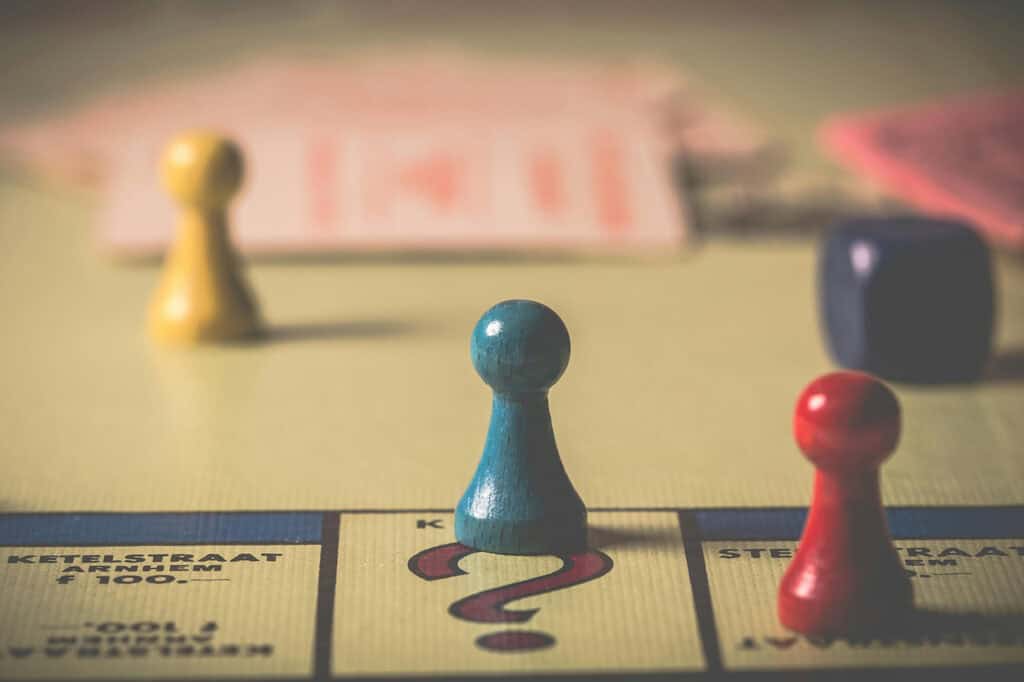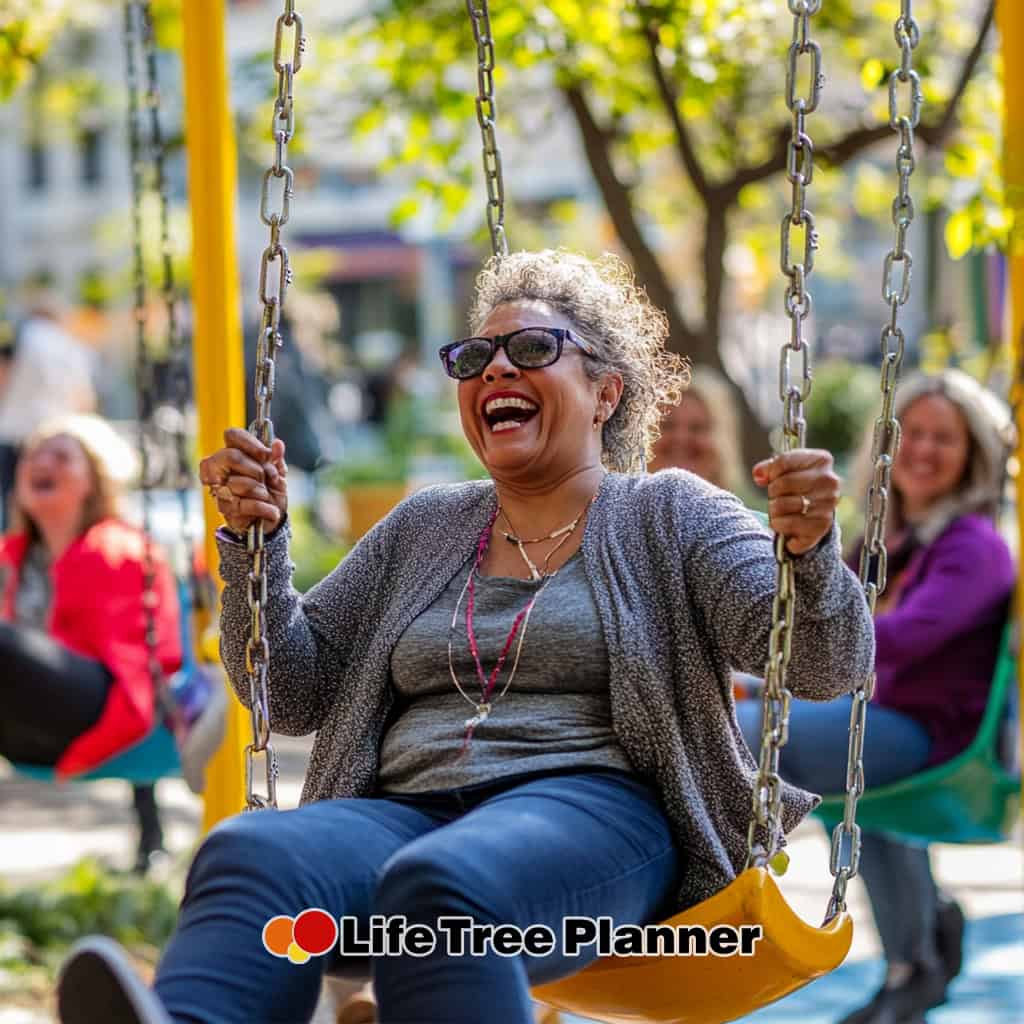
Are you feeling weighed down by life’s endless to-do lists, with little time left for joy, creativity, and fun? In a fast-paced world, it’s easy to overlook the simple pleasures of entertainment and play, even though these activities bring balance and happiness into our lives.
As someone striving for a fulfilling life, you’re not alone in longing for a break from routine. Many people today are searching for ways to unwind, express creativity, and reconnect with themselves and others. Yet, finding that balance can seem overwhelming amidst the demands of daily life.
At Life Tree Planner, we understand the challenges of living a balanced, joyful life. With years of experience in helping people embrace personal growth and well-being, we’re here to guide you on a journey to rediscover the benefits of entertainment and play. We know that even small moments of joy can have a lasting impact on your life.
In this guide, we’ll cover:
- 13 ways adults can experience joy through play and how these activities can enrich daily life
- The 5 core benefits of entertainment and play, including their power to reduce stress, boost creativity, and build connections
- How shapes children’s development, with insights from Piaget’s stages of cognitive growth
- 3 ways to incorporate play into your work to stay productive and engaged
- 4 lifelong habits to keep play alive at every age, creating a life filled with joy and resilience
Ready to bring more happiness and balance into your life? Read on to uncover practical ways to make entertainment and play a part of your daily routine and transform your outlook.
By following this guide, you’ll gain tools to create a life filled with joy, creativity, and meaningful connections. Discover how entertainment and play can be more than just a break—they can become essential ingredients for a life well-lived.
Playtime for Adults: Rediscovering Joy and Creativity

Many people think play is reserved for children, but adults, too, need play for physical, mental, and emotional well-being. Play helps adults reconnect with creativity and joy, refreshing the mind and building resilience.
As Nietzsche once said, “And those who were seen dancing were thought to be insane by those who could not hear the music.” Adults who embrace play tap into a type of joy and freedom that brings clarity and peace.
13 Fun Ways Adults Experience Play
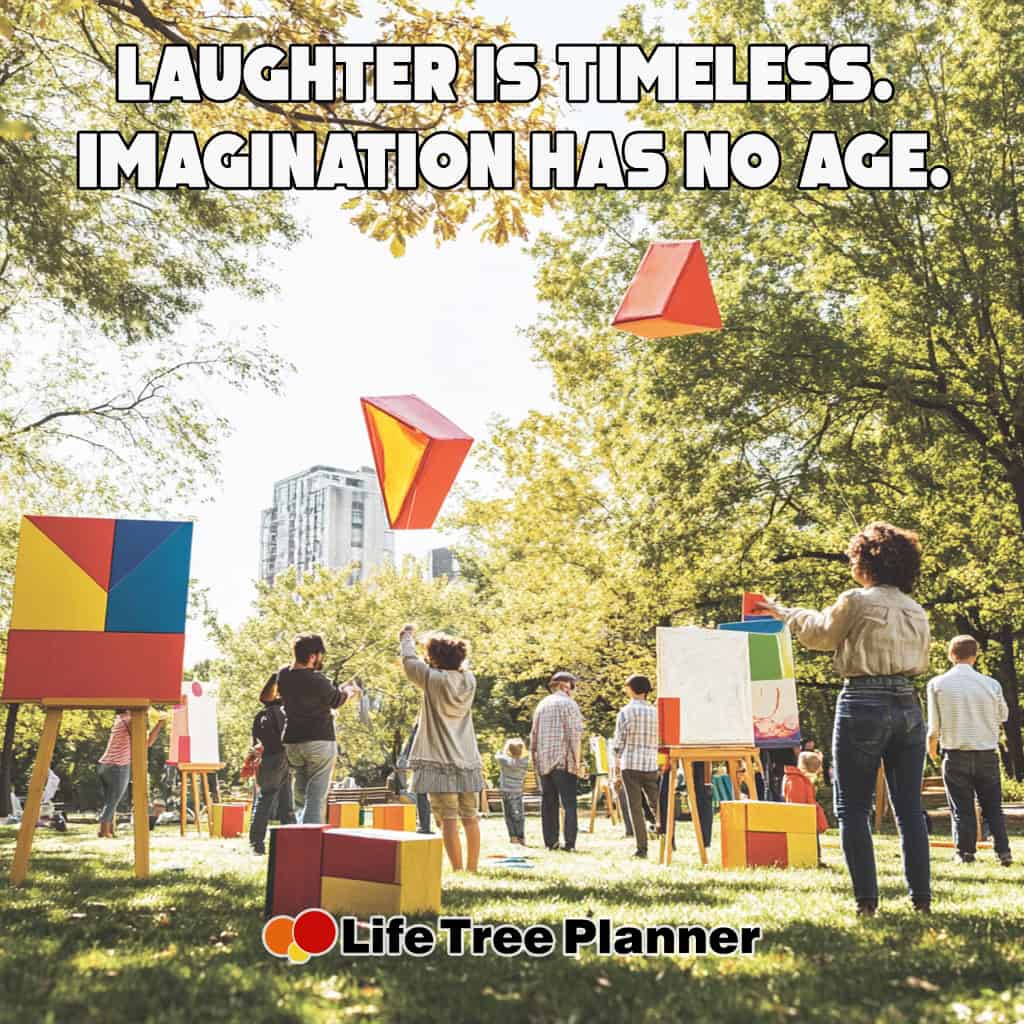
- Creative Hobbies and Arts
Activities like painting, woodworking, cooking, or knitting provide relaxation and an outlet for self-expression, fostering a deep sense of personal satisfaction. - Group and Social Games
Board games, card games, and multiplayer video games offer enjoyable, interactive ways to connect with friends and family. - Exercise and Physical Activities
Engaging in yoga, dance, team sports, or even nature walks is a healthful way to stay active while having fun. - Travel and Exploration
Discovering new places and cultures brings novelty and excitement, helping adults gain fresh perspectives. - Learning as Play
Pursuing new languages, learning musical instruments, or picking up skills for the sheer joy of it supports growth and personal motivation. - Puzzles and Brain Teasers
Activities like Sudoku, chess, and crosswords stimulate the brain, adding a refreshing break from daily routines. - Imaginative Storytelling
Writing, role-playing, or acting provides an escape into new narratives, nurturing mental creativity. - Music and Dance
Playing instruments, singing, and dancing allow adults to reconnect with joy, creativity, and self-expression. - Outdoor Adventures
Activities such as hiking, camping, and biking reconnect us with nature, instilling a sense of exploration and play. - Humor and Laughter
Comedy shows, jokes with friends, and light-hearted films bring the healing power of laughter, one of the simplest and most effective forms of play. - Pet Playtime
Playing with pets provides companionship and reconnects us with a carefree, unstructured kind of joy. - Gardening and Nature Activities
Gardening, birdwatching, or stargazing can be grounding and calming, providing a peaceful connection to the natural world. - Events and Social Gatherings
Themed parties, fairs, and karaoke nights encourage interaction and celebrate shared moments, nurturing community bonds.
See also Entertainment Cinemas: 7 Must-Have Features for Movie Lovers
Find Your Play Personality

Dr Stuart Brown, researcher and founder of The National Institute for Play, has identified eight “play personalities” that can help you find out what kinds of play work best for you:
- The Collector: You enjoy building collections, such as collecting stamps or vintage cars.
- The Competitor: You enjoy playing (and winning) games with specific rules, like playing for a neighborhood soccer league.
- The Creator or Artist: You find joy in making things, or making things work. You might enjoy doodling, woodworking, decorating, fixing machinery, or sewing.
- The Director: You enjoy planning and directing, like hosting themed birthday parties.
- The Explorer: You play by discovering something new, either physically (a new place) or mentally. You might play by going on a vacation to a new place or discovering a new type of music.
- The Joker: You enjoy being silly and foolish. You might enjoy improv theatre or simply making your friends laugh.
- The Kinesthete: You enjoy moving your body as play. You might practice yoga or take a dance class for fun.
- The Storyteller: You play by listening to or creating stories. You might enjoy going to the theater or writing in a journal.
5 Benefits of Entertainment and Play
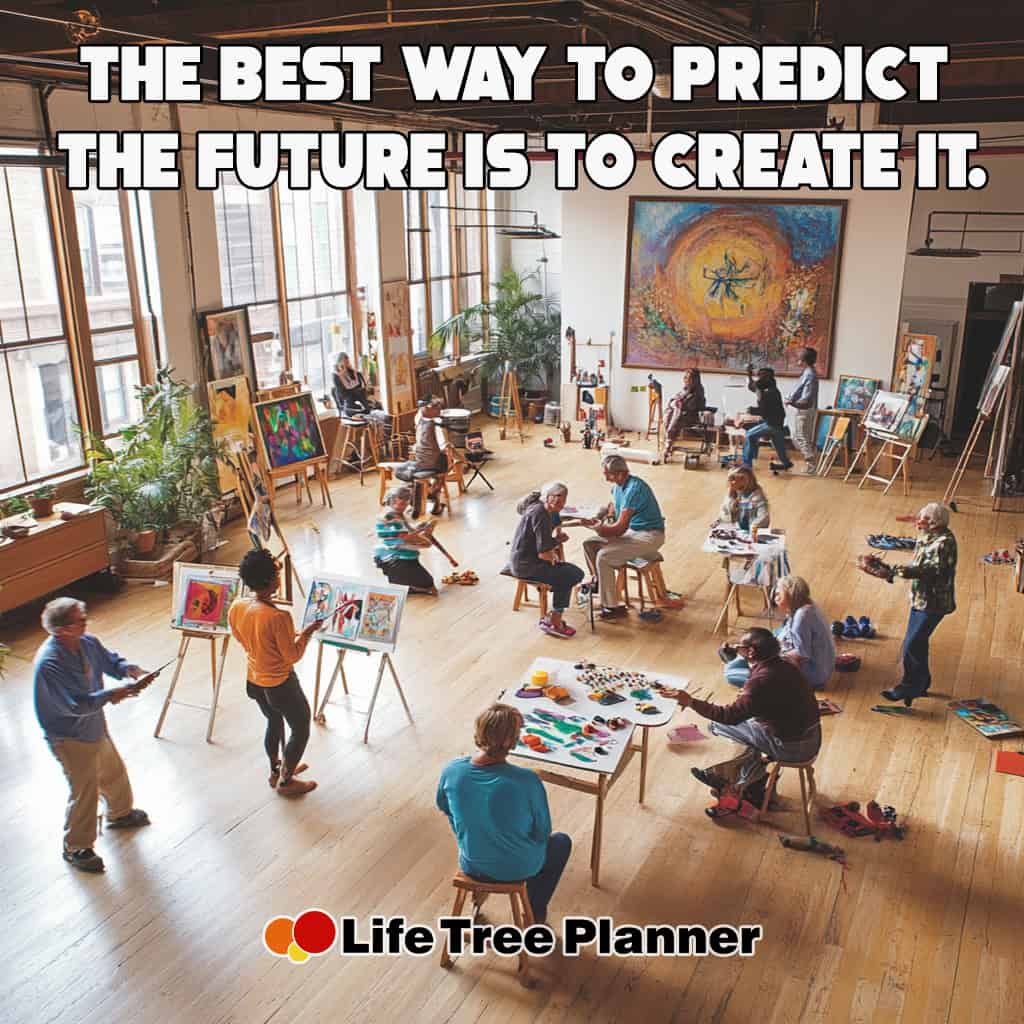
Play and entertainment deliver essential benefits, impacting mental health, creativity, and social relationships. Aristotle once said, “Happiness depends upon ourselves.” By engaging in activities that bring joy, we cultivate a fulfilling life through intentional play.
- Reducing Stress and Enhancing Mental Health
Playing releases endorphins, the body’s natural “feel-good” hormones, which ease stress and uplift our mood, helping us manage life’s pressures more effectively. - Building Community and Celebrating Culture
Entertainment often serves as a cultural bridge, bringing people together through shared traditions, festivals, and events, which strengthen connections and foster a sense of community. - Encouraging Creativity and Lifelong Learning
New experiences fuel creativity, and entertainment encourages personal growth by exposing us to innovative ideas and perspectives, whether through art, music, or travel. - Strengthening Relationships and Social Bonds
Engaging in play with others creates shared experiences that deepen connections. Through social games, storytelling, and collaboration, play fosters empathy and understanding. - Boosting Confidence and Self-Esteem
Completing a game or skill boosts self-esteem, fostering a sense of achievement and helping us build a positive self-image, which benefits us in all areas of life.
The Value of Play for Children’s Development

For children, play is a powerful educational tool, essential to cognitive, physical, and emotional growth. Philosopher Jean-Jacques Rousseau stated, “Childhood has its own ways of seeing, thinking, and feeling.” This perspective reminds us of the unique role play has in nurturing a child’s development.
4 Types of Play that Enhance Children’s Development
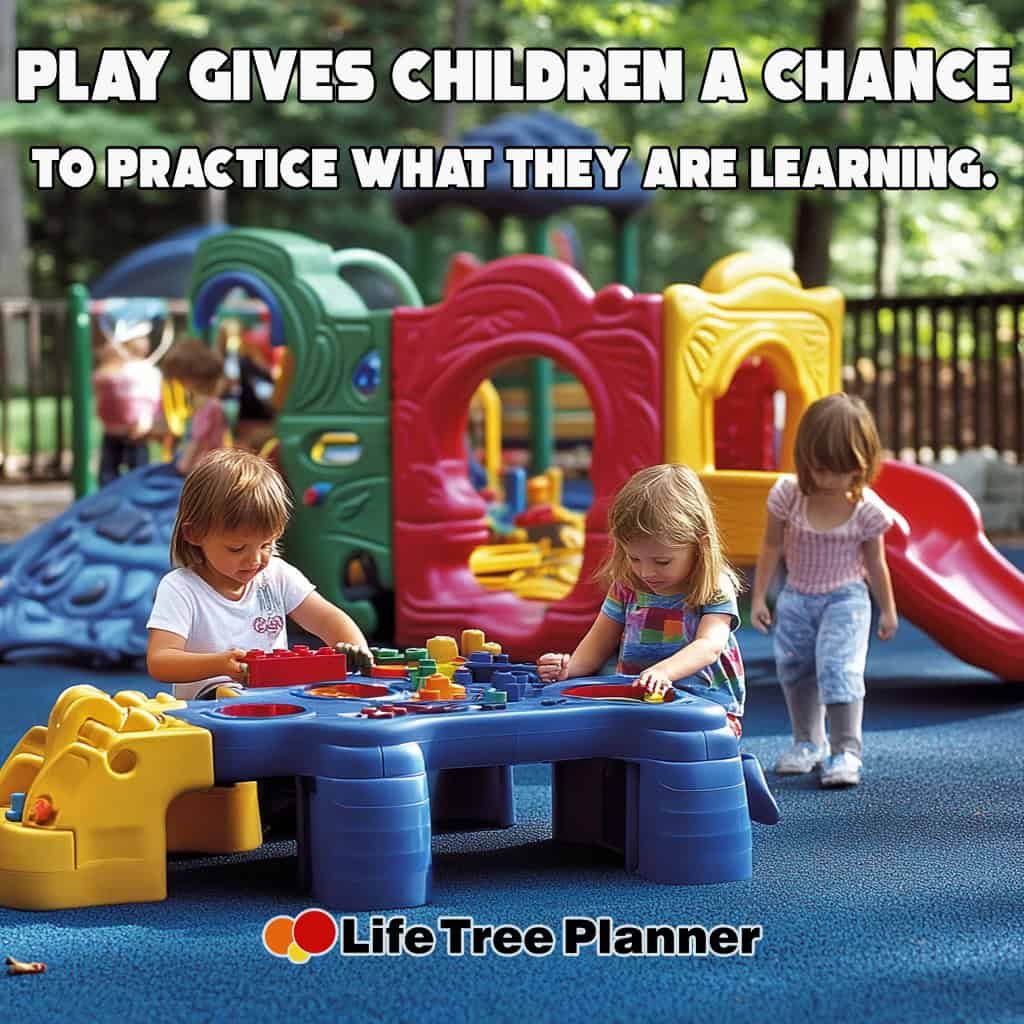
- Functional Play
Physical activities, such as running and jumping, promote motor skills and are essential in early childhood for building physical strength. - Constructive Play
Building and creating with toys, blocks, or art supplies help children develop problem-solving skills and creative thinking. - Fantasy Play
Role-playing games foster imagination, empathy, and social understanding, as children explore different roles and perspectives. - Games with Rules
Structured games with rules, like board games and team sports, encourage logical thinking, patience, and cooperation with others.
See also Why Do We Need Entertainment? 6 Insights into Its Importance
Piaget’s Four Stages of Play and Cognitive Development
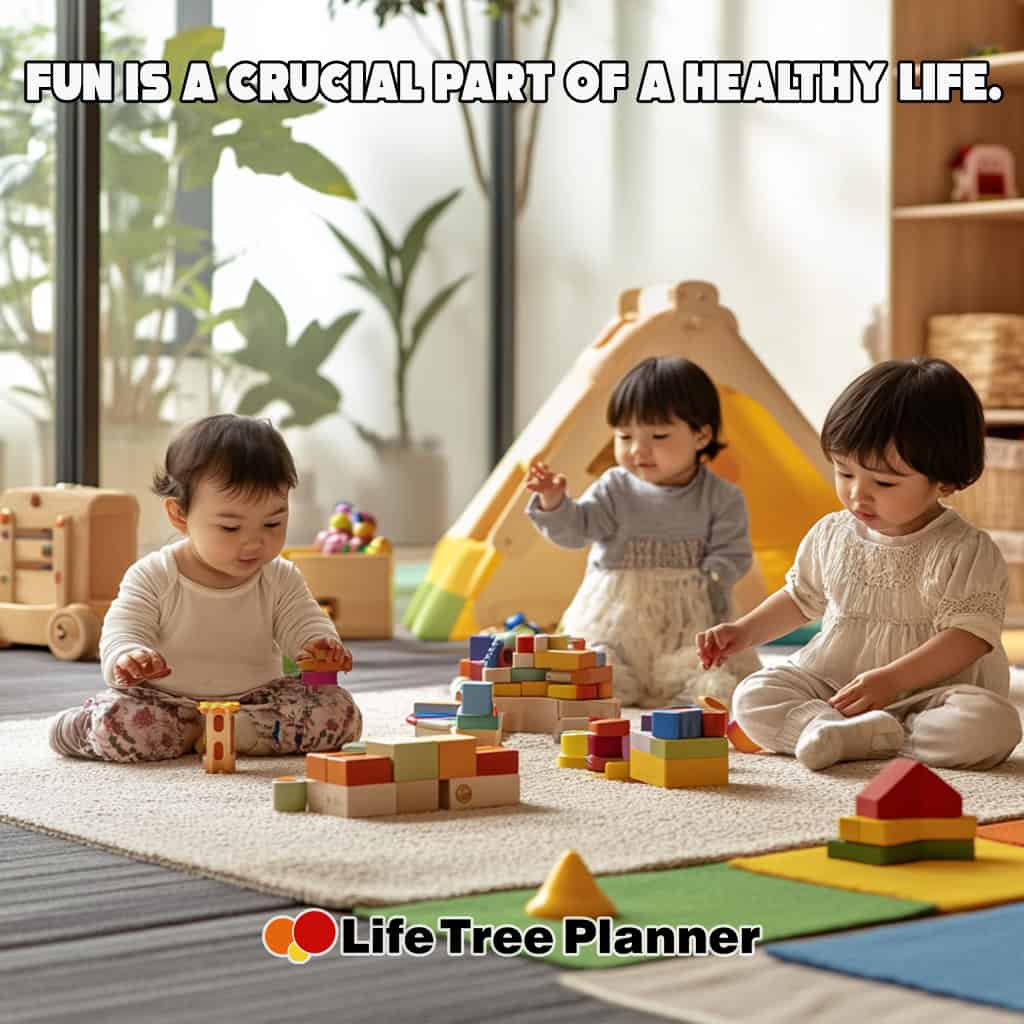
- Sensorimotor Stage (0-2 years)
Infants learn through sensory experiences and movement. Toys that stimulate touch, sound, and sight foster discovery and interaction with their environment. - Preoperational Stage (2-7 years)
Children begin engaging in symbolic play, using toys to represent real-life objects and roles, helping them understand language and social dynamics. - Concrete Operational Stage (7-11 years)
Logical thinking emerges, and children enjoy structured play activities, such as puzzles and science kits, which promote problem-solving skills. - Formal Operational Stage (11+ years)
Adolescents engage in more complex, abstract play, enjoying games that involve hypothetical thinking, strategic planning, and collaboration.
3 Ways to Incorporate Play at Work for Productivity and Fun

Incorporating play into the workplace fosters creativity, improves morale, and enhances productivity. Philosopher Confucius remarked, “Choose a job you love, and you will never have to work a day in your life.” A work environment that includes play encourages passion, innovation, and teamwork.
- Productivity Benefits of Play at Work
Short, playful breaks keep employees refreshed, helping them maintain focus and productivity. Play reduces stress, inspires fresh ideas, and boosts overall team morale. - Ideas for Incorporating Play into Work
- Creative Breaks: Provide puzzles and games that encourage employees to take breaks and re-energize.
- Office Events: Organize office social events like mini-golf tournaments or treasure hunts to foster community.
- Exercise Areas: Designate areas for physical play, like a yoga or game room, to promote relaxation.
- Tips for Managers
Managers can support a playful work culture by scheduling regular team-building activities, encouraging short breaks for socialization, and cultivating an environment where creativity is valued.
4 Ways to Incorporate Play at Every Age: A Lifelong Habit

Play doesn’t end in childhood—it’s a lifelong habit that can enrich our lives at any stage. Philosopher George Bernard Shaw said, “We don’t stop playing because we grow old; we grow old because we stop playing.” Maintaining a playful attitude supports well-being and keeps us youthful in mind and spirit.
- Making Time for Play
Schedule regular breaks for play throughout the day—whether a walk, puzzle, or dance—to keep stress in check and lift your mood. Dedicate time weekly to a favorite hobby or activity to stay balanced and energized. - Strengthening Relationships Through Play
Family game nights or group activities with friends, like hiking, picnics, or beach days, help us connect with loved ones through shared experiences and laughter. - Embracing Spontaneity
Invite spontaneity by planning impromptu gatherings or outings with friends. Trying new activities or hobbies keeps life exciting and breaks up the routine. - Having Your Inner Child
Adopt a playful mindset to approach life with curiosity and humor, remaining open to fun and lightheartedness. Rediscover the joys of childhood activities, like drawing or building, to reconnect with a carefree spirit.
See also What Are Play and Leisure Activities? Discover 5 Popular Types
Entertainment and Playtime: A Recap
Entertainment and play create a life enriched with memories, creativity, and balance. As philosopher Aristotle noted, “The energy of the mind is the essence of life.” Play is that energy, fueling our capacity to live fully. Prioritizing play helps us discover joy, explore creativity, and strengthen relationships at every stage.
Embrace play and entertainment as integral parts of a life well-lived. Whether through hobbies, travel, or laughter with friends, play has the power to elevate our lives, creating a harmonious blend of joy, creativity, and fulfillment.


